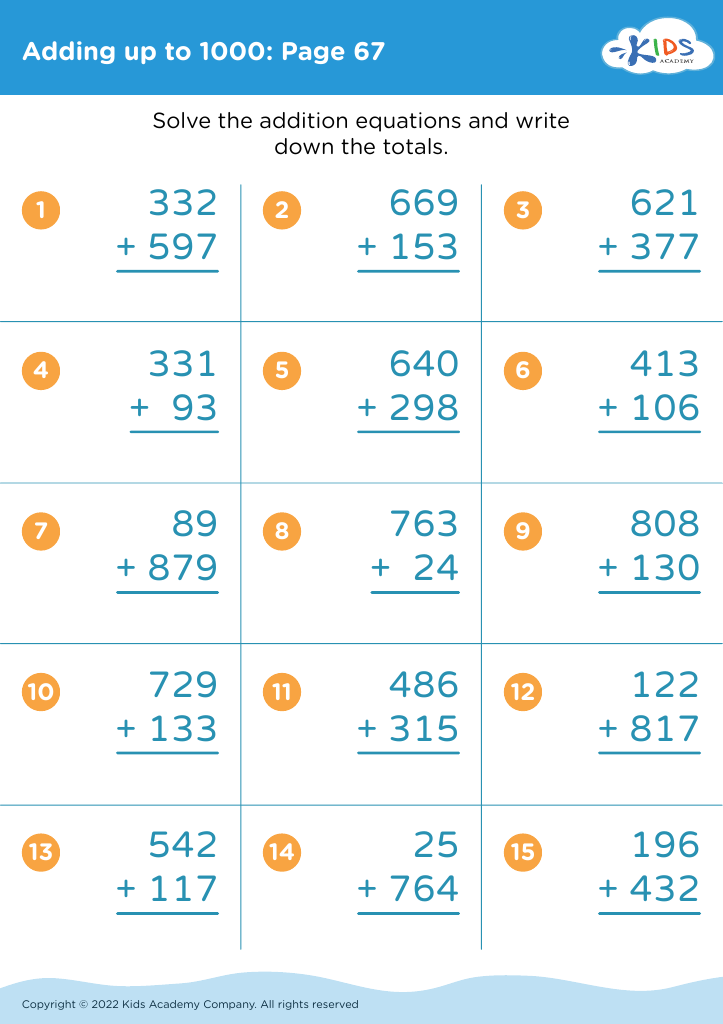Understanding multiplication Adding up to 1000 Worksheets for 8-Year-Olds
4 filtered results
-
From - To
Our comprehensive "Understanding Multiplication Adding up to 1000 Worksheets for 8-Year-Olds" are meticulously designed to enhance critical math skills in young learners. These engaging worksheets make learning multiplication intuitive and fun, as kids build a strong numerical foundation by practicing problems up to 1000. Ideal for both classroom use and at-home enrichment, they promote logical thinking and precision. Each worksheet involves fun, varied activities that hold kids’ attention, facilitating smooth progression in their mathematical abilities. Perfect for 8-year-olds, these resources help pave the way to mastering higher-level math concepts with confidence and ease.
Understanding multiplication and being able to add numbers up to 1000 are foundational skills crucial for 8-year-olds. Mastery of these concepts equips children with essential tools for more advanced math. As children comprehend multiplication, they begin to recognize patterns and relationships between numbers, which fosters critical thinking and problem-solving skills. These abilities also lay the groundwork for topics like division, fractions, and algebra in later grades.
Adding up to 1000 strengthens their number sense and comfort with larger numbers, helping them grasp the importance of place value. A solid grasp of these concepts is not just about math; it influences self-confidence across subjects. Children who are proficient in mathematics often exhibit improved academic performance, thus fostering a positive attitude toward learning.
Moreover, practical understanding of these math skills has real-life applications. It aids children in managing time, making purchases, and even improving their understanding of the world around them through activities like sports or cooking.
Parents and teachers play a crucial role in making these learning experiences engaging and stress-free. Building a strong math foundation early enhances children's future academic opportunities and nurture lifelong learning skills. Taking an active role today ensures their success and cultivates a positive relationship with math for years to come.




















